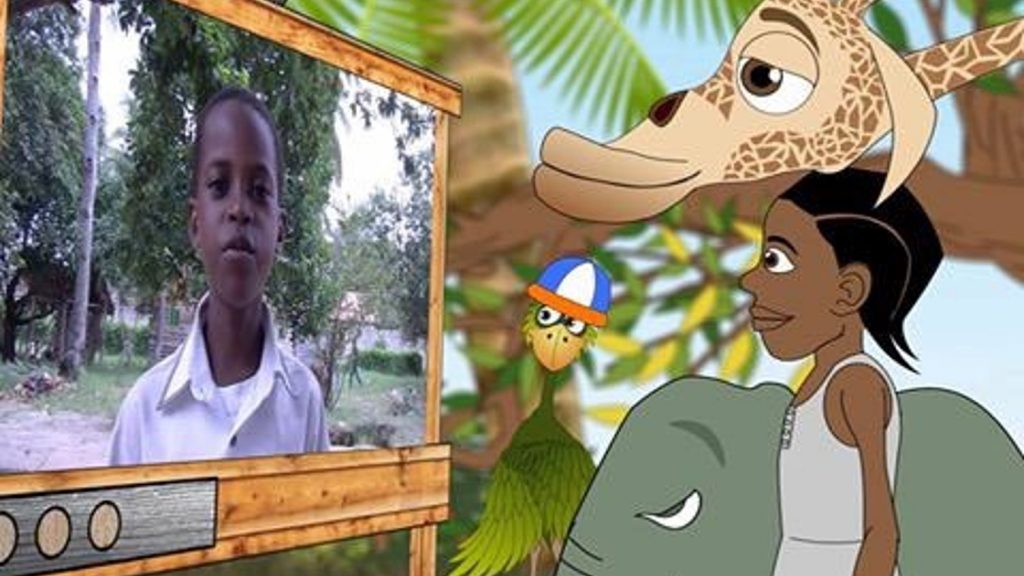Artificial Intelligence is no longer a distant promise or a Silicon Valley experiment. It’s embedded in the now. South Africans are already using generative…
Tanzania’s Ubongo to invest Next Billion Edtech Prize winnings to reach kids in remote areas

Tanzanian edutainment startup Ubongo plans to invest the $25 000 prize money the company won as overall winner of the Next Billion Edtech Prize — to help it to reach children on the continent who live in remote areas without electricity, Ubongo marketing manager Iman Lipumba has revealed.
The non-profit social enterprise produces localised, multi-platform educational content for children.
Ubongo was founded in 2013 by social entrepreneurs Nisha Ligon, animator Rajab Semtawa, software engineer and mobile developer Arnold Minde, artist and arts educator Cleophace Ng’atigwa and teacher Tom Ng’atigwa.
Last month, the startup was named as the winner of the Next Billion Edtech Prize in a pitch contest that took placed during the Global Education and Skills Forum (GESF) in Dubai. Egyptian startup PraxiLabs also won a $25 000 prize at the same event.
Ubongo plans to invest in channels that include interactive voice response (IVR) and SMS services
Lipumba told Ventureburn in an email last Wednesday (17 April) that it was “an honour” for the social enterprise to win the Next Billion Edtech Prize.
It’s not the first competition or award Ubongo has won. The startup received a nod from the Pearson Affordable Learning Fund in 2014, was named by Fast Company as one of the most innovative companies in 2015, and won the Wise Awards in 2017.
Lipumba explained that the Next Billion Edtech Prize is an assurance that Ubongo is on the right path, and can continue to grow to reach millions of children, including those living in “the last mile” with top quality education.
“We plan to invest the money from the prize to grow our impact, and channel it to products that reach kids in remote and non-electrified areas across the continent,” said Lipumba.
These products, she pointed out, include but are not limited to Interactive Voice Response (IVR) and SMS services.
Reach of over 11-million households
In 2016 the startup produced the pilot episode of Ubongo Kids, this was the first locally produced cartoon show to be aired on Tanzania’s national broadcasting network.
Ubongo’s viewership, according to GeoPoll statistics Lipumba said, currently stands at over 11 million families across sub-Saharan Africa with “hundreds of thousands” more across francophone Africa.
Ubongo’s shows currently air on free-to-air television in Tanzania, Kenya, Uganda, Rwanda, Zambia, Malawi, Ghana, Nigeria and South Africa. The startup’s content is also available on Pay TV (Canal Plus by Gulli) which broadcasts to 27 francophone countries on the continent.
“Our YouTube Channels are growing fast, and now reach about one million unique viewers a month. We get over 32 million minutes of watch time monthly on YouTube, from around the world across four channels,” she explained.
In addition, Ubongo has a number of mobile apps on the Google Play Store, ebooks on Amazon. Lipumba said the startup has some new digital spin-offs in development for this year.
Ubongo, she said, raised its initial funding of $46 000 off a Kickstarter campaign. In addition, the startup is largely funded from grants — about 83% of its income — from the Human Development Innovation Fund, Templeton Foundation, Grand Challenges Canada as well as by the Omidyar Network.
In 2016 and 2017 Ubongo was part of Spring Accelerator, an organisation that works with growth oriented businesses on innovations that can transform the lives of adolescent girls in East Africa and South Asia.
The startup has also participated in accelerator programmes by the University of Pennsylvania, Pearson and Omidyar.
“We work with world-class experts to support these businesses to create innovations with purpose and commercial potential,” said Lipumba.
Ubongo’s partners include the EU, International Rescue Committee, UN, Goodall Foundation and Save the Children.
These partners and other development organisations pay the startup to co-create content that teach children life skills like financial literacy, malaria prevention, digital literacy, and gender rights. Ubongo also generates revenue from digital products like ebooks, apps, music albums, and its YouTube channels.
Last year, Ubongo reported a 35% increase in year-over-year revenue, had a gross profit of $97 100, and total income of $1.3-million.
Of this, according to the social enterprise’s 2018 annual report, about 1.8% of its income emanated from advertising and sponsorship, with B2B sales and licensing accounting for 4.3% of total income, this while B2B sales and royalties contributed 0.5%.
The social enterprise — which recently registered an entity in Johannesburg — currently employs 39 full time employees and consultants in Tanzania, Kenya, South Africa, Nigeria and the US.
Lipumba said the startup’s main operational challenges are around work permits, problems with scaling company culture, lack of funding for operational expenditure, as well as legal challenges around corporate structure, particularly around oversight to ensure Ubongo remains compliant with all the areas in which it has entity presence.
The startup also has to report its financials adhering to two US accounting standards — Generally Accepted Accounting Principles and International Financial Reporting Standards.
Impact on early learning content
An impact evaluation study the startup carried out in 2016 in partnership with the University of Maryland School found significant learning outcomes in children who watch Ubongo content compared to those who don’t.
The study, which was published in 2017, found that children who watched Ubongo’s Akili and Me had 12% higher overall school readiness scores than control groups watching other cartoons, in addition to outperforming their peers by a 24% margin when it came to counting.
The startup has carried out a similar study in Rwanda, assessing the impact of the pilot content adapted to Kinyarwanda.
“Our Kinyarwanda adaptation of Akili and Me results in significant early learning outcomes for kids in Rwanda. We’re super excited for these results, as they provide a proof of concept for the efficacy of new language adaptations of Ubongo’s early learning content, including in early literacy,” said Lipumba.
Ubongo now plans on adapting its content into Hausa, Kikuyu and Twi in the next year. To accommodate this growth Lipumba said Ubongo has set up an office in South Africa and is growing its team.
“It is important we do all this while making sure we are becoming financially sustainable, so we will launch premium products for sale, and collaborate with more partners to co-produce content,” said Lipumba.
Featured image: Some of Ubongo’s cartoon characters (UBONGO via Twitter)


